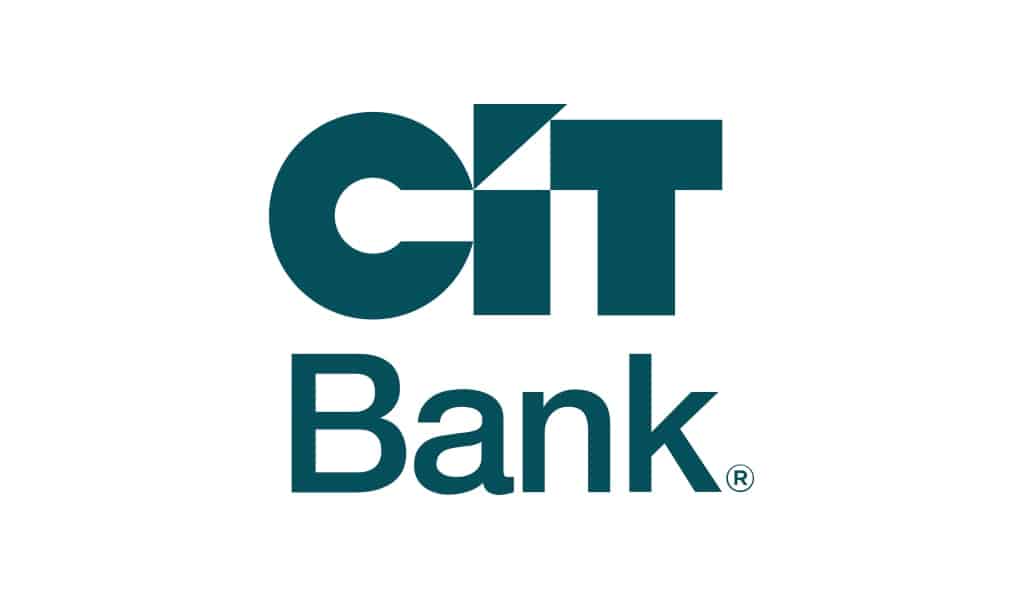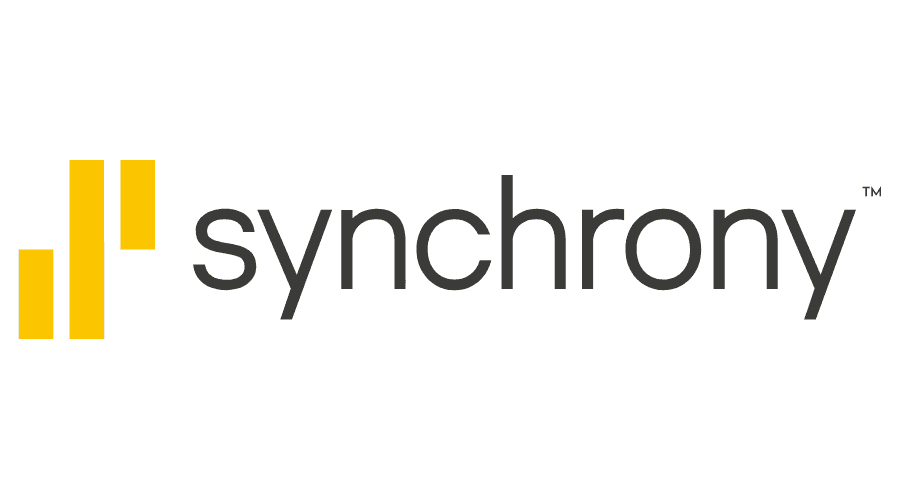Editorial Note: We earn a commission from partner links on Doughroller. Commissions do not affect our authors’ or editors’ opinions or evaluations. Learn more here.
I can still remember earning double-digit returns on high-interest CDs in the early 1980s. I had saved a little money and was locking it away in 6-month CDs earning 16%. Of course, inflation was raging, and the interest rates on home mortgages had gone through the roof. But those were the days for savers.
Certificates of Deposits offer a safe way to save money. Whether for an emergency fund, to buy a home, or liquidity during retirement, term CDs can also offer higher yields than savings accounts (although not always). Below, we cover the best bank CD rates available nationwide.
Best CD Rates
We track over 1,000 certificates of deposit. Here are some of the best CD rates from our database. You can check out all of our CD rates by term:
Bank/Credit Union
Min. Deposit
APY
Learn More

3-month APY 5.26%
6-month APY 5.23%
12-month APY 5.05%

12-month APY 4.70%
18-month APY 4.40%
24-month APY 4.00%

3-month APY 5.25%
6-month APY 4.00%
9-month APY 3.00%

13-month APY 3.50%
18-month APY 3.00%
24-month APY 0.40%

6-month APY 5.05%
12-month APY 4.50%
24-month APY 4.50%

5-month APY 5.00%
12-month APY 4.20%
15-month APY 4.50%
Details On Our Top CD Rate Picks
Here are more details on our top CD rate picks, along with other popular CDs.
Western Alliance Bank

Western Alliance Bank provides a variety of banking solutions for small businesses. Branches are located throughout a few western states including Arizona, Nevada, and California.
The bank also offers savings products to individuals nationwide through Raisin. CD terms via Raisin range from three months to one year. The minimum opening deposit for these CDs is only $1. CDs are FDIC-insured.
Western Alliance Bank CD Rates via Raisin:
- 3-month APY 5.26% APY
- 6-month APY 5.23% APY
- 9-month APY 5.15% APY
- 12-month APY 5.05% APY
Discover® Bank

Discover is a well-known bank offering a wide range of competitive CDs from three months to five years. Banking products are available online only. The minimum deposit to open a CD is $2,500. You won’t find a no-penalty option here but we do like that you can easily find the penalty for early withdrawal on their CD rates page. Be sure you know what the early withdrawal penalty is before choosing a CD.
Discover CD Rates:
- 3-month: 2.00% APY
- 6-month: 4.25% APY
- 9-month: 4.25% APY
- 12-month: 4.70% APY
- 18-month: 4.40% APY
- 24-month: 4.00% APY
- 30-month: 3.75% APY
- 3-year: 3.75% APY
- 4-year: 3.75% APY
- 5-year: 3.75% APY
Here’s our full Discover Bank review.
Ponce Bank

Ponce Bank is located in New York City and provides banking products and services for individuals and businesses. Ponce Bank is designated as a Community Development Financial Institution (CDFI) for investing in the communities they serve. Ponce Bank contributes to local environmental programs and does not invest in fossil fuel extraction. In that regard, Ponce Bank has earned a reputation for being a socially responsible financial institution.
Ponce Bank offers savings products nationwide including several CDs via Raisin. The minimum opening deposit for CDs is $1 and they are FDIC-insured.
Ponce Bank CD Rates via Raisin:
- 1-month: 5.25% APY
- 3-month: 5.25% APY
- 4-month No-Penalty: 5.15% APY
- 6-month: 4.00% APY
- 9-month: 3.00% APY
- 11-month: 1.21% APY
- 13-month: 1.31% APY
- 48-month: 1.61% APY
CIT Bank

CIT Bank traces its roots back to 1898. With its main office in North Carolina, it has over $200 billion in assets and offers CDs nationwide. It has some competitive rates for certain CD terms and a no-penalty CD.
CIT bank has some good rates, as high as 3.50% for their 13-month CD, but keep an eye out because the longer terms are still quite low. In addition to regular term CDs, CIT Bank has an 11-month no-penalty CD earning 3.50%.
CIT Bank doesn’t charge any maintenance fee but it has a minimum deposit of $1,000 for all its CDs (except for Jumbo). We list their highest CD rates below.
CIT Bank CD Rates:
- 6-month: 3.00% APY
- 11-month No Penalty: 3.50% APY
- 13-month: 3.50% APY
- 18-month: 3.00% APY
Here’s our CIT Bank Review.
Quontic Bank

Quontic Bank started out as a community bank in New York City and has evolved into a nationwide digital bank. Quontic Bank is also designated as a Community Development Financial Institution for providing banking services and products to underserved communities.
Quontic Bank CDs are available nationwide. CD terms range from six months to five years. The minimum deposit to open a CD is $500. Accounts are FDIC-insured.
Quontic Bank CD Rates:
- 6-month: 5.05% APY
- 1-year: 4.50% APY
- 2-year: 4.50% APY
- 3-year: 4.40% APY
- 5-year: 4.30% APY
SkyOne Federal Credit Union

SkyOne Federal Credit Union has headquarters in Hawthorne, CA. Established in 1949, SkyOne was originally named CAA Region 6 Federal Credit Union. The credit union went through a few other name changes before settling on SkyOne Federal Credit Union in 2010.
SkyOne serves members and families of the air transportation industry nationwide and anyone who lives or works in the Hawthorne, CA area. Now, anyone can take advantage of their CD rates via Raisin. The minimum opening deposit is only $1 and accounts are NCUA-insured.
SkyOne Federal Credit Union CD Rates via Raisin:
- 5-month CD: 5.00% APY
- 12-month CD: 4.20% APY
- 15-month CD: 4.50% APY
- 18-month CD: 3.00% APY
Barclays

Barclays banking products are available online only in the U.S. CD terms range from 12 months to five years. There are no monthly fees or minimum balance requirements for CDs. They do not offer no-penalty CDs or any bump-up or raise-your-rate CDs.
Once you open a CD, or the CD renews, you’ll have 14 days to withdraw the funds without penalties.
Barclays CD Rates:
- 12-month: 5.00% APY
- 18-month: 4.50% APY
- 24-month: 4.00% APY
- 36-month: 3.50% APY
- 48 month: 3.50% APY
- 60-month: 3.75% APY
Here’s our full Barclays Bank review.
Ally Bank

Ally is an online bank known for offering competitive interest rates on their banking products for little to no fees. In addition to several CD terms listed below, Ally also offers a “No Penalty CD” which allows you to withdraw the funds at any time without a penalty. The term on this is 11 months and it is currently earning 4.00% APY.
They also offer a “Raise Your Rate CD” which allows you to increase the rate once every two years, the current rate on this CD is 3.75% APY. Honestly, unless you think rates are going to skyrocket, stick with a standard CD for better earnings.
Speaking of raising rates, Ally offers a 10-day best-rate guarantee on all CDs. So if you open a CD today and in a few days the rates increase, you will get that higher rate automatically. This also applies when the CD renews.
There are no monthly fees and no minimums to open an account.
Ally Bank CD Rates:
- 3-month: 3.00% APY
- 6-month: 4.40% APY
- 9-month: 4.45% APY
- 12-month: 4.50% APY
- 18-month: 4.45% APY
- 3-year: 4.00% APY
- 5-year: 3.90% APY
Here’s our full Ally Bank review.
Synchrony Bank

If you’re looking for a bank with over a dozen CD terms to choose from, this one might be for you. Synchrony Bank is an online bank that offers CD terms from three months to five years.
Synchrony also offers an 11-month no-penalty CD which is currently paying 0.25% APY. They also offer a 24-month bump-up CD which allows you to raise the rate once if interest rates rise during the term. The rate for this option starts at 3.60% APY.
There are no fees and no minimum deposits required.
Synchrony Bank CD Rates:
- 3-month: 0.25% APY
- 6-month: 5.15% APY
- 9-month: 4.90% APY
- 12-month: 4.80% APY
- 18-month: 4.50% APY
- 24-month: 4.20% APY
- 36-month: 4.15% APY
- 48-month: 4.00% APY
- 60-month: 4.00% APY
Here’s our full Synchrony Bank review.
Capital One

Capital One does have some brick-and-mortar locations but their CDs are also available online. You’ll find CD terms ranging from six months to five years. There are no fees and no minimum deposits required. Capital One does not have no-penalty CDs or CDs that allow you to raise your rate during the term.
Capital One CD Rates:
- 6-month: 4.25% APY
- 9-month: 4.25% APY
- 12-month: 4.80% APY
- 18-month: 4.45% APY
- 24-month: 4.00% APY
- 30-month: 4.00% APY
- 36-month: 4.00% APY
- 48-month: 3.95% APY
- 60-month: 3.90% APY
Marcus Bank

You’ll recognize the Marcus Bank name from its parent, Goldman Sachs. Marcus CDs are available online only with terms ranging from six months to six years.
Marcus also has three no-penalty CDs: a 7-month, an 11-month, and a 13-month. The 13-month is the only one worth considering as it pays 4.70% APY, while the 7- and 11-month both pay under 0.5%.
There are regular online savings accounts that pay higher rates than 1%, so if you are thinking you’ll need the money at a moment’s notice, I’d skip the CD and get a savings account.
There are no monthly fees and a $500 minimum deposit is required.
Marcus Bank CD Rates:
- 6-month: 4.80% APY
- 9-month: 4.90% APY
- 12-month: 4.90% APY
- 18-month: 4.60% APY
- 2-year: 4.20% APY
- 3-year: 4.15% APY
- 4-year: 4.05% APY
- 5-year: 4.00% APY
- 6-year: 3.90% APY
Pros and Cons of CDs
Pros
- FDIC insured (NCUA insured for credit unions)
- Often higher rates than savings accounts
Cons
- Illiquid–may charge a penalty for early withdrawal
- Potentially lower returns than the market, especially over the long term
What is a CD?
A certificate of deposit, commonly known as a CD, is similar to a savings account, though it provides less financial flexibility.
CDs and savings accounts are insured by the FDIC, and both are investments that come with relatively little risk.
CDs typically have higher interest rates than a normal savings account, but the difference between the two is not as extreme as it once was. The interest rate on a CD is fixed. These accounts are offered at different minimum balances and varying fixed terms. With a higher minimum balance and longer term, you will usually earn a higher interest rate.
With a CD, you commit to leaving the money untouched for a certain period, which can be a few months to as long as ten years.
Unlike a savings account, any withdrawal before a CD’s maturity date comes with a significant withdrawal penalty, which could exceed any interest and may tap into the principal.
Most CDs don’t have monthly fees attached, so they offer a nearly risk-free way to save money and earn some interest.
How CDs Work
When you buy a CD you are locking your money up for the term of the CD. So if you are buying a one-year CD you are agreeing not to touch that money for one year. The money is just as safe as it would be in a savings account – in that there is no market risk and it’s FDIC insured.
You do this in exchange for a higher interest rate than you would get on a savings account without taking on any extra risk.
While the CD is in place you can’t add or remove any principal. You can however take any interest that has accrued. This is a way to provide some income to yourself while not touching the principal balance and taking no risk.
If you do break the CD and take your money there are typically fees involved. A common arrangement is that CDs that are less than a year will have a fee of three months’ interest and CDs longer than a year will have a fee of six months’ interest. But always double-check your particular CD as the fee structure is up to the individual bank.
When the term of the CD is up (or “matures”) it will automatically roll over into a new CD for the same term but at whatever the market interest rate is for that term. You will get a notice from the bank that your CD is about to mature and you’ll have the option to take the money, add more money, or do nothing and let it roll over.
What Is a Good Rate For a CD?
Right now, anything above 4% is pretty good and sometimes you can find a rate as high as 5%
When you’re choosing a CD, you want to compare minimum deposit amounts and term length as well as the interest rate. Longer terms don’t automatically mean higher rates.
What to Consider When Comparing CD Rates
Term
This kind of goes hand in hand with penalties. When you buy a CD you are locking your money up for a period of time, typically anywhere from three months to five years, or more. CDs work best if you know you can leave that money untouched. If you think you may need the money, look into a high-yield savings account instead.
Also, longer isn’t always better. It seems logical that you would get a higher rate if you were to choose a longer term, but that isn’t necessarily the case. Most banks have the highest rates around the one-year mark.
Read more: Best Online Savings Accounts
Interest Rate
Once you know how long you are comfortable locking your money away, you then want to make sure you are getting the highest interest rate you can. Shop around and find the bank that offers the highest rate for your desired term
Penalties
People get nervous when they hear the word penalty but it’s probably not that big of a deal. You will lose interest if you don’t hold the CD for the whole term. The common penalty for a CD that is less than one year is three months of interest. If the CD is over a year, it’s common that the penalty is six months of interest.
If you know that you’ll need the money before the end of the term you should choose another savings vehicle. A high-yield online savings account is a good option. It still pays competitive interest rates but provides all the liquidity you could need. However, if life happens and you need to break into your CD before the term is up, we likely aren’t talking about a lot of money. Probably better to cash out a CD than to sell a stock at an inopportune time.
CD Laddering Strategy
If you like the thought of a CD’s low-risk, moderate return potential but are unsure about locking your money up for a set term, CD laddering may be a good savings strategy for you.
With CD laddering, instead of putting all your money in one CD, you split it up into several smaller CDs with different maturity dates.
Here’s how it works:
Say you have $10,000 to invest in CDs. You could put the entire amount into a single five-year CD. If you choose CD laddering, you split up the $10,000 over multiple CDs with staggered terms. You put $1,000 into a one-year CD, $2,000 in a two-year CD, $2,000 in a three-year CD, and $5,000 in a five-year CD.
After one year, when your first CD reaches its maturity date, you may decide to cash out the principal and interest, or you can roll it over into another CD. In the meantime, your other CDs are also a year closer to maturing.
There’s no ideal length for a CD ladder. It’s completely up to you. If you plan to reinvest in another CD, you should reach for the highest rung on your ladder. If you’re going to roll over your first one-year CD, you should search for another five-year CD to replace your highest rung.
CD laddering gives you some options and offers you more liquidity than putting all your money into one large CD. You can vary the amount, term, and even location of your CDs. After doing some research, decide on the CD amount and term that will give you the best return. Maybe one CD is at your local bank, one’s at a credit union, and the other two are at an online bank.
CD laddering can help you save more, while also providing a safety harness. It’s a smart tactic to take advantage of the low-risk, solid return of CDs.
Read more: How and Why to Create a CD Ladder
CDs vs. Savings Accounts
CDs typically have a higher rate of return, though your money is locked in for the length of the CD term. If you need to access the money in the event of a financial emergency, you’ll be subjected to an early withdrawal penalty.
A CD is not the only option for savings, however. You can always choose a traditional savings account. Though you may earn less interest, it’s another good risk-free option. You can withdraw your funds without penalty, but you’re limited to no more than six transfers per month.
High-interest savings accounts offer a higher rate of interest. It can pay to shop around, and with a larger deposit, you may earn a higher interest rate.
Money market accounts offer another savings option. They operate like savings accounts and typically have comparable interest rates. The difference is the way they’re funded by the bank or financial institution. This difference impacts the interest rate, and it can be higher or lower than traditional savings accounts.
Depending on the amount you have available to put into savings, your financial goals, and your savings timeline, you have many investment options available from a variety of financial institutions. With a little research and effort, you can find the product or combination of products to best meet your needs.
Are CDs safe?
Life comes with few guarantees, but CDs are very safe.
Just like a savings account, CDs are FDIC-insured. If you use a credit union for your CDs, these institutions are insured by the National Credit Union Administration (NCUA). Both the FDIC and NCUA cover up to $250,000 at an institution, and that amount includes interest. If you’re investing more than that in CDs, you should choose multiple financial institutions for the utmost protection.
Here’s more about how FDIC insurance works.
What happens if I withdraw from a CD early?
One of the disadvantages of putting your money in a CD is the early withdrawal penalty. The amount varies from institution to institution, but an early withdrawal will cost you interest and perhaps even some principal.
Common penalties for CDs with terms under one year is three months of interest and CDs with terms over one year is six months of interest.
So if you have a five-year CD and want to withdraw the funds after two years, it’s likely you will lose six months of interest (but no principal). If you have a one-year CD and want to withdraw it after two months, you will be charged the amount of interest that would have been earned in three months. So you’ll lose the two months of interest that you earned, plus a little bit of principal.
What CD term length should I choose?
When you’re doing your CD research, you should weigh the term length against the rate of return.
Longer terms don’t necessarily mean higher rates. If you think interest rates will be going up, choose a shorter term. If you think interest rates will be going down, choose a longer term. If you are like most of us and can’t predict the future, then just choose the term with the highest interest rate right now.
But also consider what you are comfortable with. If locking up your money for five years seems unreasonable, then choose a shorter term.
Should I put my emergency fund in a CD?
Putting your emergency fund in a CD may seem like a smart choice. If you aren’t planning to use the money before the CD matures, why not earn a little more interest? Plus, if you tend to dip into your savings for non-emergencies having it in CD will prevent that.
The downside of putting your emergency fund in a CD is that if you do need the money for a real emergency, you’ll be paying a penalty to access it. That may be worth it, or it may not. That’s up to you.
If you do decide to put your emergency fund into a CD break it up into several small ones. For example, instead of buying one $10,000 CD, buy ten $1,000 CDs – Or even 20 $500 CDs. That way if you do need to access your funds the penalties will be less.
For example, let’s say you have a $10,000 CD earning 4% interest and your car breaks down costing you $3,000. If you have to break into your $10,000 CD that might cost you $100 for three months of interest. However, if you have that same $10,000 in ten $1,000 CDs you’ll need to break into three of them, which will only cost you $30 for three months of interest — since you are leaving the other seven untouched.
We Know Certificates of Deposit
I’ve invested in certificates of deposit since 1979. I can recall earning more than 16% on a 6-month CD. Today, I still use CDs from time to time to hold our emergency fund, and we track CD rates daily.
The Dough Roller editorial team represents more than 50 years’ worth of experience when it comes to certificates of deposit. We’ve used that experience and countless hours of research to help you find a great CD.


